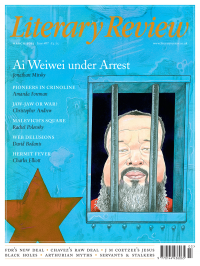John Cooper
Power Player
The King’s Henchman: Henry Jermyn – Stuart Spymaster and Architect of the British Empire
By Anthony Adolph
Gibson Square 355pp £20
The next time that a hankering for high-class cheese or West Indian lime cologne draws you to London’s Jermyn Street, take a moment to recall the man for whom this avenue of temptation is named. A Suffolk squire’s son who rose to become one of the leading courtiers of the Stuart age, Henry Jermyn acquired a prodigious taste for the luxuries of life. Lely’s portrait of 1672 depicts him, after he had been elevated to Earl of St Albans, splendidly bewigged and flourishing his wand of office as lord chamberlain to Charles II. As Anthony Adolph explains in this energetic and original biography, Jermyn’s influence depended on his closeness to the monarchy rather than government office. Quite how close he came is a moot point. The King’s Henchman is sold as a love story between Queen Henrietta Maria, lonely wife of Charles I, and the young buck who joined her household in 1627. Jermyn served the queen for more than forty years: as gentleman usher and master of the horse during the good times, then as cipher clerk and political agent when the Civil War drove her back to her native France. Jermyn’s rivals gossiped that their friendship went a good deal deeper. Adolph presents the two as an item, whether running the royalist government in exile or planning the redevelopment of St James’s Fields. Even Charles II, he reckons, must have wondered if Jermyn was his real father.
With his fluent French and dashing good looks, Jermyn was a natural diplomat. He was also resourceful and brave. Episodes in which Jermyn carries the queen away from parliamentarian shelling in Bridlington, or saves her from Breton peasants following her escape from Falmouth, are captured in spirited prose. Adolph’s description

Sign Up to our newsletter
Receive free articles, highlights from the archive, news, details of prizes, and much more.@Lit_Review
Follow Literary Review on Twitter
Twitter Feed
Under its longest-serving editor, Graydon Carter, Vanity Fair was that rare thing – a New York society magazine that published serious journalism.
@PeterPeteryork looks at what Carter got right.
Peter York - Deluxe Editions
Peter York: Deluxe Editions - When the Going Was Good: An Editor’s Adventures During the Last Golden Age of Magazines by Graydon Carter
literaryreview.co.uk
Henry James returned to America in 1904 with three objectives: to see his brother William, to deliver a series of lectures on Balzac, and to gather material for a pair of books about modern America.
Peter Rose follows James out west.
Peter Rose - The Restless Analyst
Peter Rose: The Restless Analyst - Henry James Comes Home: Rediscovering America in the Gilded Age by Peter Brooks...
literaryreview.co.uk
Vladimir Putin served his apprenticeship in the KGB toward the end of the Cold War, a period during which Western societies were infiltrated by so-called 'illegals'.
Piers Brendon examines how the culture of Soviet spycraft shaped his thinking.
Piers Brendon - Tinker, Tailor, Sleeper, Troll
Piers Brendon: Tinker, Tailor, Sleeper, Troll - The Illegals: Russia’s Most Audacious Spies and the Plot to Infiltrate the West by Shaun Walker
literaryreview.co.uk